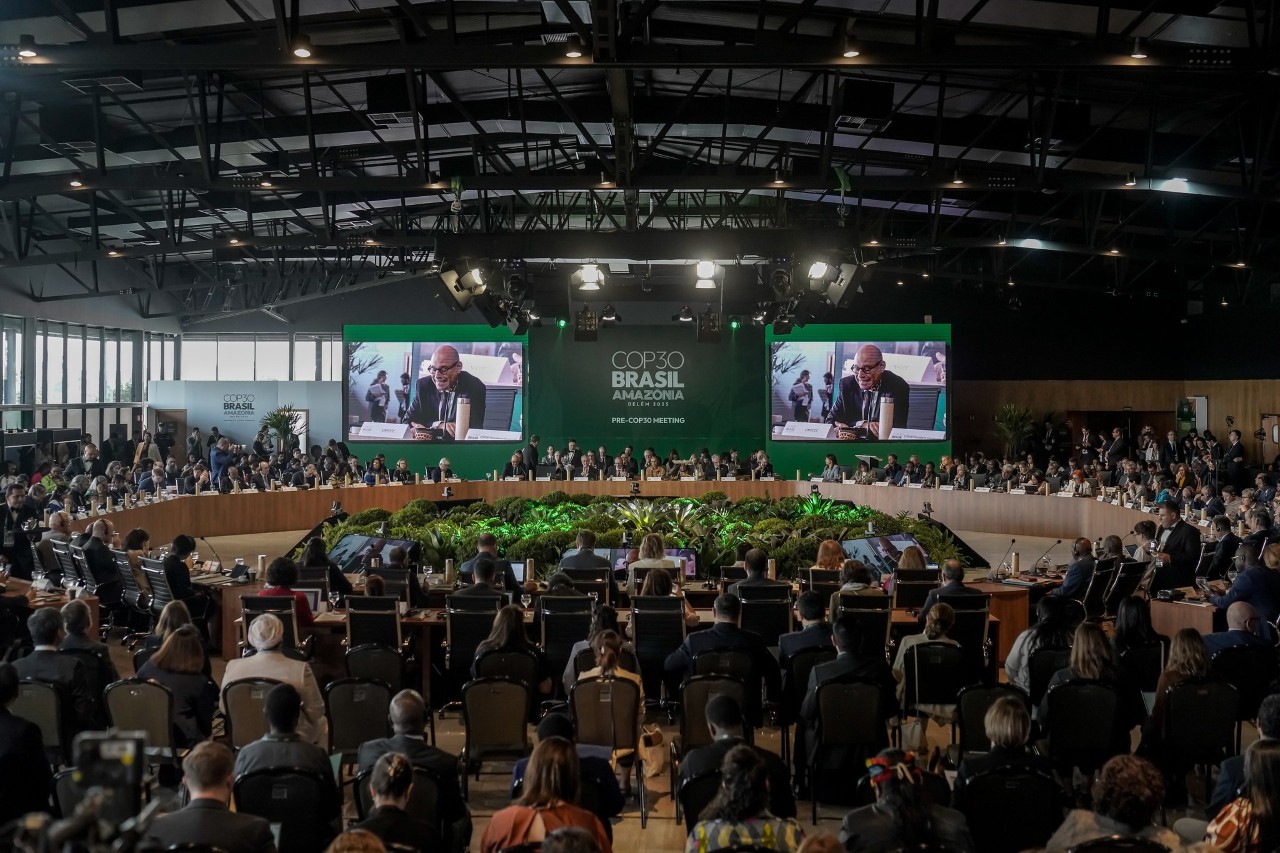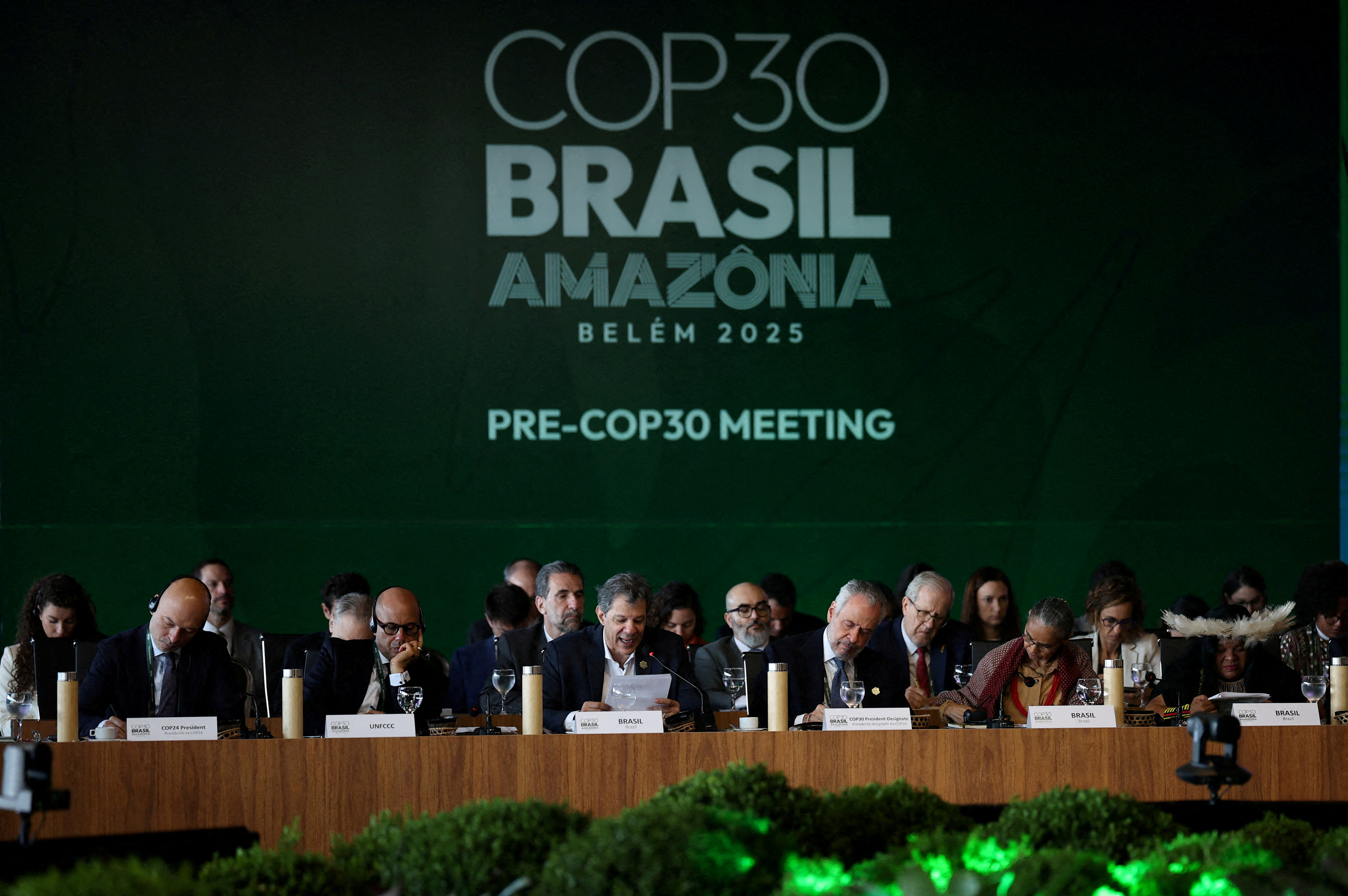By YES-Europe COP30 Project Lead Caterina Bittendorf
Every November, the world gathers to confront its greatest existential challenge of our time: climate crisis. The Conference of the Parties (COP) to the United Nations Framework Convention on Climate Change (UNFCCC) is more than a summit – it’s a commitment to combat the climate crisis and ensure a livable future, at least so we hope. Nevertheless, every year people question how much sense it makes to fly thousands of people to a conference center to leave with mediocre results that are hardly felt at home. So as COP30 approaches in Belém, Brazil, it’s worth reflecting on why this process matters, what it has achieved, and why it continues to inspire hope and action.

A track record of progress
Since its inception in 1992, the UNFCCC has been the backbone of global climate diplomacy. Besides being the only international space where mitigating, adapting and combatting climate crisis gets negotiated, its achievements include:
- The Kyoto Protocol (1997): The first binding agreement to reduce greenhouse gas emissions. Ratified by 192 parties. This includes nearly all member states of the United Nations, making it one of the most widely supported international environmental agreements in history.
- The Paris Agreement (2015): A landmark accord and outcome of COP21 where nations pledged to limit global warming to well below 2°C, with significant efforts towards 1.5°C. 195 parties have ratified the Paris Agreement, out of the 198 parties to the UN Framework Convention on Climate Change (UNFCCC). This near-universal participation underscores the global commitment to limiting temperature rise and addressing climate crisis collaboratively – and as the ICJ laid out in its advisory opinion, is a legal obligation.
- Global Stocktake (2023): A comprehensive review of climate progress, pushing countries to strengthen their commitments.
These milestones have shaped national policies, mobilized trillions in climate finance, and elevated climate science to the forefront of global decision-making. Of course we are far from where we should be and need to be. Every day people suffer and die from the consequences of climate crisis, we still are nowhere near net zero and still rely on fossil fuels – despite the best available science telling us otherwise. However, if we compare where we would be without Kyoto, Paris or the UNFCCC as a whole we would look at a future much, much worse. Already today we would have global warming around 2+ degrees, and would likely surpass +4° degrees of global warming. With the agreements of the UNFCCC we are not on track, but much closer. And now desperately need to get to work to close this ambition gap.
COP30 – a turning point in the amazon?
COP30, hosted in Belém from November 10–21, 2025, is symbolic and strategic. Located in the Amazon – a region that absorbs 25% of annual CO₂ emissions – it highlights nature’s role in climate solutions. Key goals include:
- Finalizing indicators for the Global Goal on Adaptation (GGA) to measure resilience progress.
- Strengthening Nationally Determined Contributions (NDCs) to align with net-zero targets.
- Mobilizing $1.3 trillion annually through the “Baku to Belém Roadmap” to fund climate action, of which most must be grant-based climate finance that is easily accessible especially for most affected communities.
- Adopting a rapid full fossil phase out.
This COP isn’t just about pledges, it’s about accountability, equity, and urgency. 10 years after the Paris Agreement the stakes are high, the expectations higher and the fear to leave Belém emptyhanded pressuring. Parties must deliver. Stepbacks are not negotiable. We need ambitious climate action now!

The personal is political
COP30 is personal because climate change is personal. It affects the air we breathe, the food we grow, the homes we live in. It’s about my friends in flood-prone cities, your neighbors facing drought, children losing access to school, girls facing increased gender-based violence, elders suffering from extreme heat and our shared future. Engaging with climate policies, whether through activism, education, or conversation, isn’t optional. It’s essential.
At COP we as civil society, as young people, are present to make our voices heard, highlight our realities and demand action. Climate justice is used often like a buzzword, but it’s real – that’s the reason to fight. When I started my journey as a 11-years old, I wanted to do something nice for the planet, the polar bears and save some forest. But it’s much more than this, it’s about our existence, our future and – especially as women – also about our rights. A right to a livable future for all following the principles of intergenerational equity, gender justice, and well climate justice. Those who have caused the problem must pay up, take on responsibility and ensure ambitious and rapidly implemented climate policies guide us in a better future – whether one is in Europe, Latin America or the Pacifics.
For us as an NGO, COP is also a platform to advocate for our communities who are often excluded from decision-making, hold our governments accountable for their climate promises and non-existent promises as well as collaborate across borders to scale solutions and share innovations. We do so in various events and presentations, e.g. sharing about YES’ involvement in the Nordic Youth & Children Climate Conference (NYCCC) and LCOY Bulgaria, and presenting our demands to negotiators and stakeholders.
You can follow along on our socials (LinkedIn and Instagram) and blog posts.
So why does COP matter?
Because without it we would look at a future much worse. Because it’s the only place where the world negotiates and (hopefully) agrees to act on climate crisis. And because in a time of rising seas, burning lands and shrinking timelines, agreement is everything. COP30, held in Belém in the Amazonia, is a chance to turn promises into progress, into reality. And for us as young people and YES-Europe to amplify voices that demand urgent action, a just energy transition and a future for all.

A tropical menu brings a refreshing burst of island flavors right to your table, celebrating the bright, juicy, and vibrant tastes of the tropics. Packed with pineapple, mango, coconut, passionfruit, and fresh citrus, these dishes and drinks instantly transport you to sun-soaked beaches and breezy palm trees. Whether it’s smoothies, bowls, coolers, or café-style snacks, a tropical menu blends natural sweetness with energizing goodness.